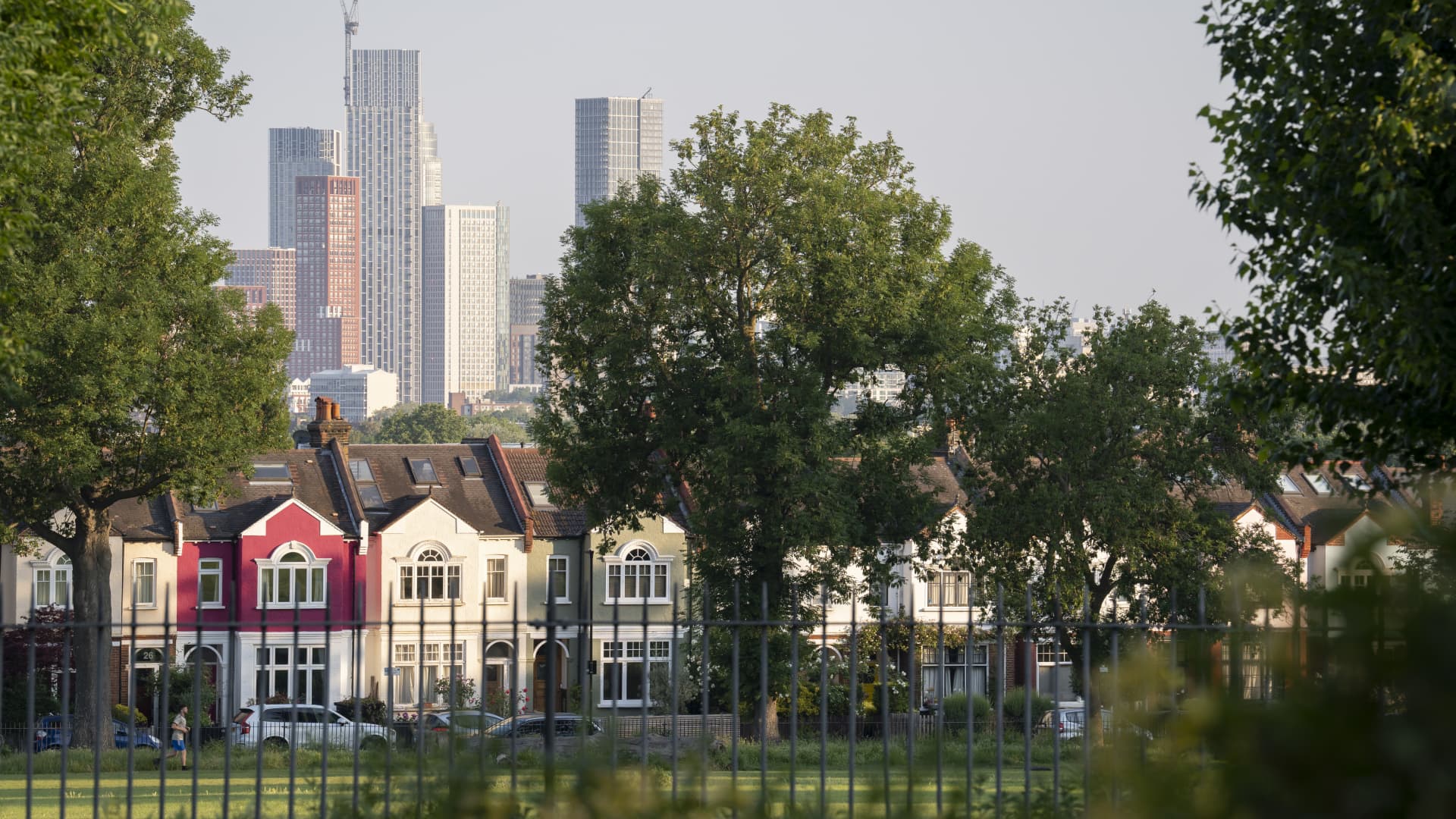Rents are up 30% and more in some cities. What to do if you’re worried about a big hike
Things have come a long way from the peak of the pandemic, when rents in major cities were hugely discounted and concessions were common.
Across the U.S., average monthly listed rents are up more than 14% from last year, according to real estate firm Redfin. In New York, the costs have risen more than 30%, and in Austin, Texas, 40%.
As a result, many tenants who moved into a rental at a reduced rate over the last two years could face a big hike when their lease is up.
Here’s what to do if you’re worried about one.
Learn as much as you can
Allia Mohamed, CEO of Openigloo, which allows renters in New York City to review landlords, recommends all tenants get informed about their rights and protections, which vary by location.
For example, there’s a mounting movement across the country to regulate rent increases.
In Oregon, most hikes are already limited to 7%, plus inflation. Recently, Santa Ana, California, passed legislation capping rent increases in most buildings to no more than 3% during any 12-month period. And residents in St. Paul, Minnesota, voted last year in favor of a rent control policy that will also limit increases to 3% a year beginning May 1.
More from Personal Finance:
These scams may cost you this tax season
Top outdoors vacation spots worldwide
What it would take for the government to cancel federal student loans
While most landlords are still free to raise your rent at renewal as much as they’d like, some have to provide you with notice.
Landlords in Seattle, for example, are required to alert their tenants 180 days prior to any change, and most renters across Washington state are guaranteed at least a 60-day heads-up.
In Seattle and Portland, Oregon, your landlord may be required to pay for your moving costs if you can’t afford to stay in your home after a hefty rent increase.
You can also get a sense of how fair your lease renewal rate is by comparing it to the rents of similar apartments in your neighborhood, Mohamed said.
Openigloo.com has a rent calculator that can help New Yorkers learn if they’d be overpaying. At Zumper.com, tenants can look up the median rental prices in many cities.
“If you find that other places in your area are going for less, start making a list of examples,” said Patty Crawford, vice president of strategic accounts at Zumper. “The more data you have, the better.”
In addition to the hard numbers, finding out other information about your landlord and building can also be useful at negotiation time.
Have a conversation with your landlord
“Do you have a small landlord that lives in your building?” Mohamed asked. Perhaps you want to emphasize how considerate and quiet you are as a tenant, and that they should want to keep you as a neighbor, she suggested.
“Does your landlord have vacancies?” Mohamed added. “You could offer to spread the word and make referrals to your friends to help them fill apartments in exchange for a rent concession or discount.”
You can also ask your landlord about their preferences.
If your property manager or owner senses your desperation, you won’t have a solid stance to negotiate.Patty Crawfordvice president of strategic accounts at Zumper
For example, they might consider a lower increase if you sign a two-year lease instead of a one-year contract.
If you’re able to, Crawford said, your landlord may respond well to an offer to pay a few months of rent up front. “Many property managers or owners would be thrilled to not have to worry about chasing late rent payments,” she said.
Experts recommend you begin these conversations as soon as possible.
“If your property manager or owner senses your desperation, you won’t have a solid stance to negotiate,” Crawford said.
Other options
If your landlord won’t budge on rent, there are other things you could ask for, Mohamed said.
“Maybe some of your appliances are in need of an upgrade, or you’d like a utility bill to be included in your rent,” she said.
Some property managers, she added, may also be open to delaying the hike. For instance, they may allow you to pay half of the increase in the first six months and then make up the rest in the next six months.
“If you’re expecting a salary bump, this could be a great compromise,” she said.
To stay or to go?
As unhappy as you might be with your increased rent, moving may not lead to lower costs, said Jay Parsons, vice president and deputy chief economist at RealPage. In fact, he said, renewal rent increases grew at only one-third the rate of new leases for much of last year.
“Property managers routinely price renewal leases below what they’d charge a new resident,” Parsons said, adding that they want to save on so-called turn costs, including changing the carpet, painting and cleaning.
Moving is also not cheap.
“Upfront costs such as movers and utility transfers can add up and might actually be more expensive than the rent increase,” Crawford said.
That all being said, you don’t want to leave yourself in a situation where you may not be able to pay your rent or meet your other necessary expenses. The general advice is that you shouldn’t be directing more than 30% of your salary to rent.
“If a steep increase puts you far above that threshold, I’d suggest finding something else,” Mohamed said. “Even if you could tolerate the increase by cutting back in other areas, this may be unsustainable if the rent goes up again the following year.”








